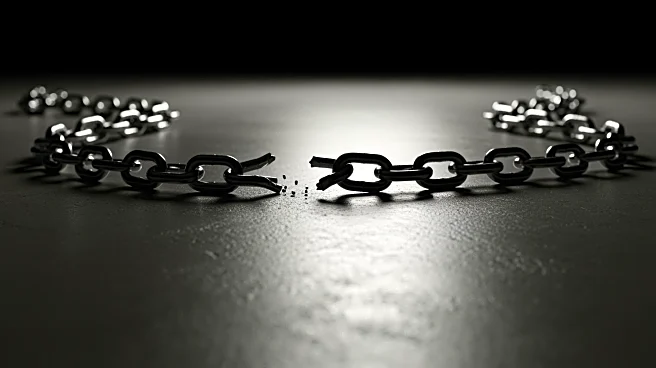What's Happening?
Ghislaine Maxwell's former cellmate, Jessica Watkins, has publicly stated that Maxwell is not suicidal, countering ongoing conspiracy theories surrounding the death of Jeffrey Epstein. Watkins, who was
incarcerated with Maxwell, tweeted that Maxwell is not suicidal and highlighted the lack of working cameras at FCI Tallahassee, where Maxwell is serving her 20-year sentence. Maxwell was convicted in 2021 for her role in Epstein's sex-trafficking ring. Despite her conviction, Maxwell has expressed willingness to testify before Congress regarding Epstein's client list. Recently, Maxwell's legal team sought to have her conviction overturned by the U.S. Supreme Court, arguing it should have been blocked by Epstein's 2007 plea deal.
Why It's Important?
The statement from Maxwell's ex-cellmate adds a new dimension to the ongoing discussions about her safety and the circumstances surrounding Epstein's death. This development is significant as it may influence public perception and legal proceedings related to Maxwell's case. The broader implications involve the transparency and security within the U.S. prison system, especially for high-profile inmates. Additionally, Maxwell's willingness to testify before Congress could have far-reaching consequences for individuals potentially implicated in Epstein's network, affecting political and social landscapes.
What's Next?
Maxwell's legal team continues to challenge her conviction, and her potential testimony before Congress could lead to new investigations or revelations about Epstein's associates. The public and media scrutiny surrounding her case is likely to persist, potentially prompting further legal and political actions. Stakeholders, including legal authorities and political figures, may respond to these developments, influencing future proceedings and public discourse.










